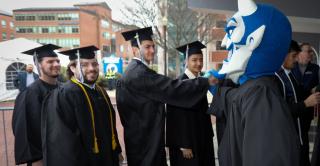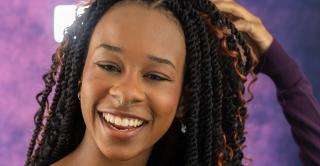
June 20, 2024
Rationale and Purpose
Central Connecticut State University (Central) values the open exchange and expression of diverse views and ideas. Our commitment to this principle requires accommodating differing and controversial perspectives, fostering dynamic discourse, and protecting the physical safety of all community members. This policy aims to balance the right to freedom of speech and expression with the necessity of ensuring a safe environment.
Administrative Goal and Objective
The Protest Response Team (PRT) at Central is dedicated to creating, revising, and managing Standard Operating Procedures (SOPs) for event protests or potential protests. The PRT comprises university officials from various departments, including Student Affairs, the Central Reservations Office (CRO), and the Central Police Department. These SOPs guide the university community—students, faculty, staff, alumni, and guests—in organizing and participating in peaceful, non-disruptive demonstrations and expressive activities. Our aim is to ensure these activities align with the university's commitment to free speech while maintaining physical safety.
We provide access to campus facilities for events, including protests, through the CRO. Our objective is to foster an environment of open communication and coordination, thereby maintaining operational continuity and setting clear expectations for safe and respectful expressive activities. We encourage individuals and groups planning to use Central as a site for expressive activity to reach out to the CRO, Student Affairs, and the Central Police Department for assistance in making the event successful and safe, especially if the event might draw controversy. Central will not impose unconstitutional content restrictions on any event or protest. However, events and protests may have legally permissible time, place, and manner restrictions.
A coordinated process with open communication is the best method to ensure the continuity of your event or protest. The PRT aims to give every student a place and a voice to be heard.
Best Practices
To mitigate confusion between free speech and behaviors that violate the student code of conduct or Connecticut Penal Code, we strongly recommend meeting with the CRO, Student Affairs, and the Central Police Department, as well as reviewing the relevant statutes, student code of conduct, and Central SOPs.
Peaceful, Non-Obstructive Civil Protest
A civil protest typically involves an organized public demonstration of disapproval or disagreement with an idea or course of action. Campus protests, such as marches, meetings, picketing, and rallies, are often peaceful and non-obstructive. Generally, peaceful protests should not be interrupted. Protesters should not be obstructed or provoked, and efforts should be made to conduct university business as normally as possible. We recommend that organizers of a peaceful protest utilize the Civil Protest Guidelines provided to support these activities in a safe and effective manner.
As a public institution, consistent with the First Amendment, Central provides access to its outdoor space for individuals and groups not part of the campus community who wish to engage in speech activities within designated boundaries. The university has identified specific campus public areas where speech and the distribution of literature are permitted.
Civil Protest Guidelines
- Coordinate with the CRO: Designate a location for the civil protest.
- Pre-Protest Meetings: Conduct meetings to review guidelines.
- Educate Participants: Clarify the distinction between disruptive and non-disruptive behavior.
- Provide Documentation: Distribute Central documentation and website links to SOPs related to Civil Protest / Safe Demonstration.
- Review Student Code of Conduct: Highlight violations related to disruptive protest.
- Review Connecticut General Statutes: Specifically address 53a-107, which pertains to criminal trespass.
- Follow CRO Scheduled Hours: Ensure the protest does not extend past the operating hours of the building.
- Maintain Safe Egress: Ensure protest locations do not encroach on university buildings and remain at least 25 feet from all doors and windows.
Components of a Disruption to a Campus Event
Behavior is evaluated for disruption based on the time, place, and manner in which it occurs. Any restrictions on speech must be:
- Content Neutral: Prohibiting content-specific viewpoints is not allowed.
- Narrowly Tailored: Restrictions must serve a governmental interest without being overly broad.
- Alternative Means: Ensure there are ample alternative means to express ideas.
Students or student organizations have the right to freedom of expression to the extent allowed by law. Central reserves the right to make reasonable restrictions on time, place, and manner in certain situations.
Time
Timing of Behaviors: Disruptive behaviors occurring during and near the time of an event.
- Facility Operations: Behaviors preventing a facility from opening or closing at scheduled business hours or conducting normal business.
Place
- University Activities: Behaviors occurring at university-run, university-authorized activities, and university-sponsored events.
- Campus Locations: Behaviors occurring on university property.
- Sponsored Events: Events sponsored by university employees, departments, schools, colleges, divisions, or Registered Student Organizations.
- Approved Venues: Events held in venues approved through the formal CRO process or off-campus lease process.
- Rented Spaces: Events in spaces rented by the university to outside groups.
Manner
Behaviors that materially and substantially disrupt another person's freedom of expression or the ability of others to receive the expression or information intended for the audience. Indicators include:
- Significant Impact: Behaviors that Central staff believe significantly impact the event and do not cease when confronted.
- Escalation: Behaviors that escalate when requested to stop.
- Inconsistent Behaviors: Actions inconsistent with the parameters set up by event organizers.
Examples of Disruptive/Non-Disruptive Behavior
Likely Disruptive
- Blocking others' vision in any manner (e.g., with signs, clothing, props, bodies).
- Producing noise that interferes with events and activities.
- Failing to stop making noise when instructed.
- Using laser pointers.
- Employing sound amplification equipment.
- Turning off lights in a room.
- Activating phone alarms.
- Possessing replica weapons.
- Displaying signs where they are not permitted.
Likely Non-Disruptive
- Holding an 8.5”x11” poster in front of oneself if signs are allowed.
- Using props, costumes, or other items that do not block anyone's view or ability to hear, assuming they are allowed.
- Engaging with a speaker if the speaker chooses to be engaged.
- Wearing clothing with pictures or words.
Summary
Central is committed to fostering a safe and respectful environment for all expressive activities. By adhering to the outlined guidelines and engaging in open communication with the CRO, Student Affairs, and the Central Police Department, individuals and groups can ensure their protests and demonstrations are successful, respectful, and safe. Compliance with these policies not only protects the right to free speech but also ensures the safety and continuity of university operations



